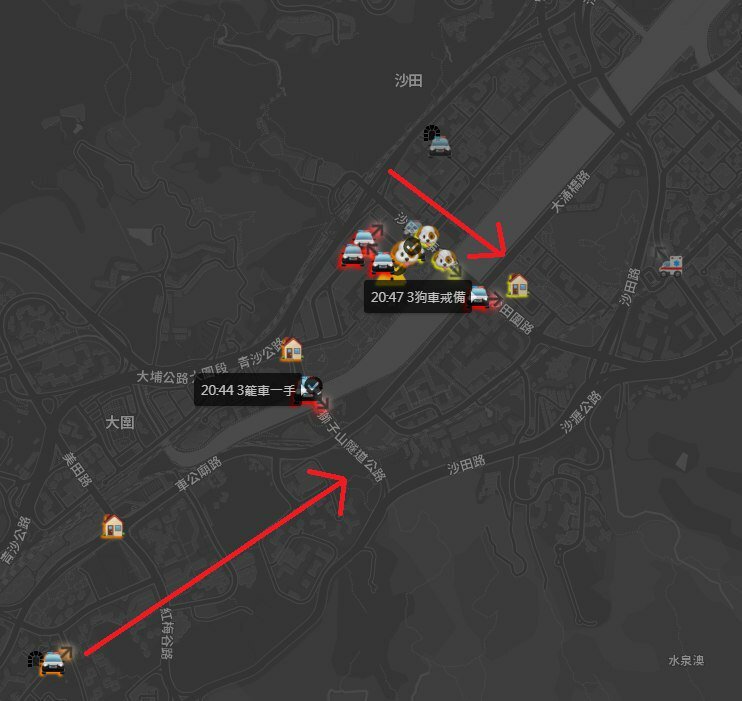Some mainland Chinese call for boycott of Apple after it approves Hong Kong protest app
Some mainland Chinese call for boycott of Apple after it approves Hong Kong protest app

Calls to boycott technology giant Apple took off over the past weekend on social media in mainland China after news spread that the company initially rejected and then approved HKmap.live, an app that tracks the location of police patrols in Hong Kong. The app enjoys huge popularity among protesters in the city, who use it to evade law enforcement.
The crowdsourced map app, which was called “a good helper for Hong Kong rioters” by the nationalistic rag the Global Times, is the mobile version of a website of the same name, which debuted in August when the Anti-Extradition Law Amendment Bill protests started to heat up across Hong Kong. Per Boing Boing, the app serves a similar purpose to the website: to track “the locations of protesters, police, and traffic, as well as the use of antipersonnel weapons like tear gas, mass arrests of people wearing T-shirts associated with the protest movement, and mass transit closures in proximity to demonstrations” by gathering reports from its users who exchange information in a Telegram group.
According to the app’s developer, who used the alias Kuma while talking to Bloomberg, prior to the controversial approval, the app had experienced two rejections for different reasons. In September, about five days after the developer submitted the app to the app store, it was first rejected for reasons regarding “rules on payment options” and “what additional functions apps can tap.” After making adjustments per Apple’s suggestions, the developer resubmitted the app. But this time, HKmap.live was rejected again on October 2 because, as Apple stated in a letter to the developer, it “facilitates, enables, and encourages an activity that is not legal.”

“To make it clear, I still believe this is more a bureaucratic f up than censorship,” the developer wrote on Twitter. “Everything can be used for illegal purpose on the wrong hand. Our App is for info, and we do not encourage illegal activity.”
Claiming that the app itself was neutral, its developer immediately made an appeal to Apple right after the second rejection. Two days later, after taking “additional time” in the review process, Apple finally approved HKmap.live. On October 5, it officially went live on the App Store.
“There will not be any further comments on this matter unless status changes,” the maker of HKmap.live tweeted. “We understand @Apple have many business considerations, but since they already make thing right I don’t see any point to keep pressing.”
Apple’s reversal of its previous decisions about the app quickly drew political criticism from mainland media outlets like the Global Times, which published an article (in Chinese) on October 6 on its official WeChat account. It stated that while the developer told Bloomberg News that the app was built to show “events happening” in Hong Kong and he had no control of what its customers used it for, the creator’s political stance was clearly pro-protests judging from his posts on social media and the derogatory language the app uses to refer to local police officials. The Global Times also took a shot at how Western media, such as Bloomberg News, reported on this subject: “Perhaps it’s the pressure from these Western forces that confound black and white that forced Apple to approve the app eventually,” the article concludes.
On Weibo, a number of internet users have been calling for a boycott of Apple after seeing the news. “This is unacceptable! Let’s send Apple to the grave,” a Weibo user commented (in Chinese). Some current users of Apple products also expressed willingness to switch brands should the company remain silent on the issue. “I’m ready to ditch my iPhone and start using Huawei!” another Weibo user wrote.
This, of course, isn’t the first time people from mainland China have called for boycotts of companies with ties to political matters regarding China’s territorial disputes. In the wake of the Hong Kong protests, a string of international brands, such as fast-fashion giant Zara and Italian luxury fashion house Versace, have felt the need to clarify their endorsements of China’s territorial integrity in order to continue doing business in mainland China.






